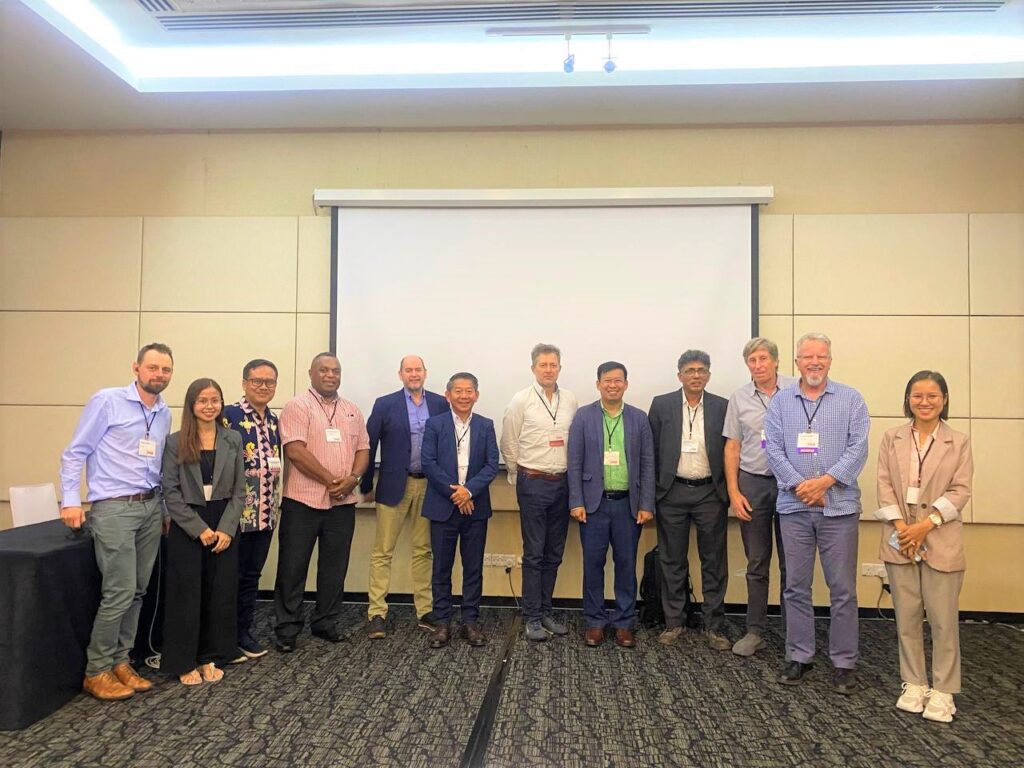Strategic environmental assessment in Mekong countries
Open Development Cambodia (ODC) was thrilled to host a panel discussion on “Strategic environmental assessment (SEA) in Mekong countries” at the 42nd Annual Conference of the International Association for Impact Assessment: Resilience through impact assessment and Leadership on 10th May 2023 at Borneo Convention Centre Kuching, Kuching, Malaysia. Representatives from Cambodia’s Ministry of Environment’s EIA department, SEA, and environmental law experts participated in our discussion to share their experiences and insights on SEA progress, development, and best practices in the region. Mr. THY Try, ODC’s Executive Director, started the discussion by explaining what ODC is and what we are working on. The discussion will provide an update on the progress and development of SEA in Cambodia and opportunities to learn from experts in the field. During the session, three important questions were discussed: the current legal framework, key research gaps and priorities for advancing SEA, international cooperation and knowledge sharing, and opportunities and challenges to SEA development and implementation in Mekong countries. Because there are still limitations in environmental impact assessments (EIA) that have been used to evaluate the impact of investment projects on the environment, the establishment and implementation of SEA are required for significant investment. EIA also has varying effects on the projects. Cambodia’s development and economy have benefited greatly from investment inflows. Aside from the contribution to the country’s growth rate, the environmental impacts can be seen at both the micro and macro levels, which should be carefully considered. The micro level focuses on the correlations between the attraction of investment by firms and the cost of the environment, whereas the macro level focuses on the government’s and international community’s concern about whether foreign investment will degrade the ecological environment of host countries or not. The Law on Environmental Protection and Natural Resource Management, the National Environmental Strategy and Action Plan (2016-2023), Sub-decree No. 72 on the EIA Process, and the Environmental and Natural Resources Code are all SEA-related regulations in Cambodia. The code could make SEA a requirement for strategic planning in a variety of industries. The process of preparing a SEA report must take special consideration and provide opportunities for vulnerable people, ethnic minority groups, and indigenous peoples to participate. The monitoring results will be made available to all ministries and institutions, as well as the general public. Although the SEA process was initiated in the late 1980s by high-income countries such as the United States and European states, this tool is receiving increasing attention in the Greater Mekong sub-region. In Cambodia, the SEA initiative was only launched in the mid-2010s, with the publication of some pilot industry-specific reports, such as one on sustainable tourism. The SEA of Cambodia’s strategic planning framework for fisheries 2010-2024 was also published as a result of the development partner’s commitment. The Cambodian SEA path, like that of other countries, began with an emphasis on EIA. Currently, ODC is assisting the Ministry of Environment’s Department of EIA in developing the SEA guideline. The department highlighted the development of the SEA technical guideline and the SEA on sand mining in Cambodia. Based on the discussion during the session, the guidelines will be conducted within the next three years based on the timeframe provided. This is an important step towards ensuring that our natural resources are used sustainably. The experts have concerned with the management plan and responsibilities of the SEA’s lead agency. It would be sustainable if the SEA’s leadership is the line ministry. Because SEA and EIA are not the same things, and each SEA report is unique, stakeholders must be trained and experienced in SEA practice. Cambodia should make an effort to develop this policy because its role is critical and it has many opportunities and value in the ASEAN region. We applaud the ministry’s commitment to promoting environmentally responsible practices and eagerly await the results of this SEA. During the discussion, the participants also shared updates and the progress of the SEA implementation in Mekong countries.
